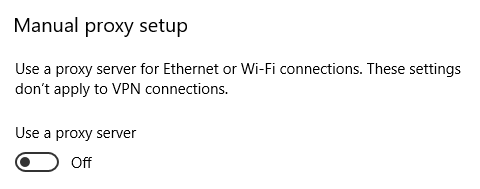While so many security and anonymous-browsing services are being offered online it can be a pain to figure out which proxy or VPN option to choose, and which benefits each would provide. Proxies and VPNs will both re-route a user’s internet usage and effectively conceal their IP address, but proxies and VPNs actually function very differently from each other.
The usual reasons for using a VPN or Proxy is to hide the user’s information/identity from ISPs and their government for security and privacy reason, or in order to bypass a geographical limitation enforced by IP address. Netflix, Hulu, and Pandora are good examples of websites that can’t be used by many countries outside of the United States.
Although a proxy and VPN can both perform this very similar function of changing a user’s IP address, the actual processes involved for each are very different which makes them both have different uses and limitations. Hopefully this article will clear up the questions most people end up asking when trying to decide on a Proxy or VPN which are “what is the difference between a proxy and VPN?”, and more specifically, “Should I use an full featured VPN or will a simpler Proxy do the trick?”.
What is the Difference Between a Proxy and a VPN Service?
What is a Proxy?
Think of a proxy as relay that your web browser, or another specific program, routes it’s internet traffic through. While accessing the internet through a proxy the user’s security, anonymity, and even speed can be enhanced along with the bonus ability to choose a desired geographic location. However, the main problem with beginners and proxies is having to learn how to set up a computer’s programs and browsers to use the proxies.
Proxies are program-based and internet traffic is only sent through them by programs and web-browsers specifically setup to use their settings. Proxy server settings are usually input directly in your web-browser, or web-related program, no matter if you are using Firefox, IE/Edge, Chrome, Safari, or some other web browser/program. Some older browsers and programs may not have a proxy server option, though.
Some good news to keep in mind is that most serious proxy providers have started offering tools for Windows, Linux, Mac, and even Android and iOS that will automatically configure certain web-browsers to use their proxy servers. Also, premium software and browser plugins can also be found and bought that will allow a user automatically send traffic from any program through multiple proxies – often times from a simple list of proxies.
Proxy PROs
- Proxies are Cheap and easily found for free.
- Proxies will hide your IP from simple tests/logging and are good for using some geo restricted websites and services
- SOCKS proxies can handle any kind of internet traffic (including torrents).
- HTTPS (SSL) proxies are roughly equal to 128-bit encryption.
Proxy CONs
- HTTP/HTTPS Proxies are generally only useful for accessing websites.
- Sneaky use of JS, Flash, and other scripts allow websites to detect true IP even with some proxies.
- HTTP/SOCKS proxy traffic is not encrypted -ISP and government can monitor what users do. HTTPS (SSL) proxies cannot be monitors but IP addresses can be logged.
- SOCKS proxies are slower than HTTP proxies.
- Each web browser/software must be configured individually to use the proxy servers.
What is VPN?
A VPN, also known as a Virtual Private Network, service provider encrypts all of your computer or network’s traffic, skipping over your ISP’s servers and routing all traffic directly to the VPN server with high enough encryption that even most governments would be kept out from snooping. Think of a VPN as a long imaginary ethernet cord that your computer or router connects directly to the VPN server with for internet use.
A VPN works with all internet-based services and programs. Everything the machines connected to the VPN do over the internet will be routed directly through the VPN Server, so as long as you trust your VPN provider then you can consider your privacy and information 100% safe!
Most VPN Providers have proprietary or open-source software for Windows, Linux, Mac, Android and iOS that will allow for seamlessly using their VPN Servers. Unlike proxies, there are no fancy premium software or plugins that you would ever need to enjoy the full benefits. However, if wanting to put your whole network behind a VPN, you would have to invest in a VPN Router or possibly consider flashing your current router to DD-WRT/Tomato to gain the ability if able.
VPN PROs
- VPN Internet activity cannot be spied on by ISPs or governments.
- VPNs have high levels of 128-bit to 2048-bit encryption.
- All VPN internet activity masked once VPN set up on device or router.
- Some VPNs offer some kind of proxy service to go with their regular VPN service.
VPN CONs
- VPNs are more expensive than proxies and rarely free.
- VPNs can be a bit slow during peak usage times of day.
- If VPN provider keeps logs then these may be obtained by the authorities.
Proxy versus VPN Conclusion
There are hundreds, if not thousands, of VPN and Proxy services to choose from.
A VPN is pretty much superior in all ways to proxies when it comes to security and anonymity. VPNs provide vastly greater encryption and can do a much better job protecting a user’s entire internet activity and usage. If staying anonymous and secure when you browse online, shop, or use other services – a VPN is the way to go.
While proxies with HTTPS encryption can provide a decent amount of security and privacy, a proxy is generally the better choice when a user has multiple programs or browsers that need to have different IP addresses and/or geo-locations all at the same time. Most proxy users are web-scraping, game-botting, and users trying to get around geo-location limits.














